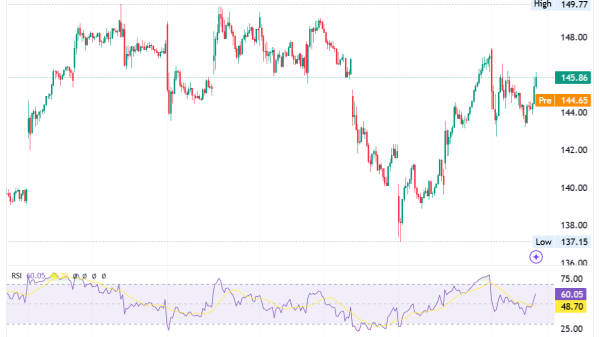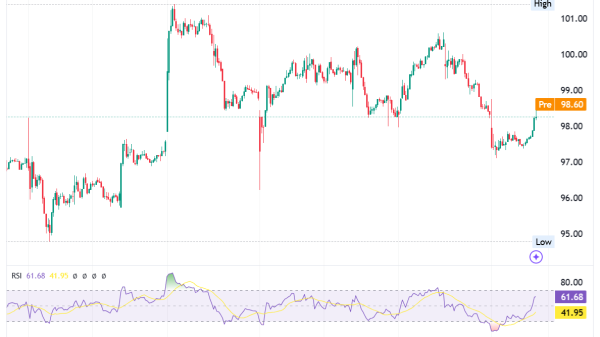Rep. Ken Buck (R-Colo.) had a question for the two Republicans leading the race to succeed Rep. Kevin McCarthy (R-Calif.) as House speaker: Who won the 2020 election?
That’s not really how it was phrased; Politico’s sources in the closed-door meeting where it was offered put it as, “Did Donald Trump win the 2020 election?” But that was the gist. Buck was asking the potential next leader of the House whether he would side with reality — Trump lost — or with the mirage of fraud and theft that Trump has been so relentless about presenting.
House Majority Leader Steve Scalise (R-La.) — who won an informal vote for the role on Wednesday morning — and Rep. Jim Jordan (R-Ohio) apparently chose the mirage. But then the majority of the Republican caucus did, too, on Jan. 6, 2021, when it counted.
Since this was a closed-door meeting, it’s not clear exactly how Scalise and Jordan tried to thread that needle. Politico’s Olivia Beavers reported that “some Republicans interpreted Scalise and Jordan’s answers as equivocating on the validity of Trump’s loss,” with at least one saying that the two “tried to have it both ways.”
Again, this isn’t really surprising. CNN-SSRS polling has consistently shown that most Republicans in the United States think that Joe Biden wasn’t legitimately elected in 2020, with a third saying there’s solid evidence he wasn’t. (There isn’t.) More to the point, the bulk of the caucus each man hopes to lead voted to reject the electors submitted by Arizona and/or Pennsylvania in the wake of the riot at the Capitol. That is despite a number of Republicans leaving and joining the House in the intervening 2½ years.
Analysis of the considerations of those states’ electors shows that more than half the existing Republican conference was in the House on Jan. 6, 2021, and opted to reject the submitted slates. Then, as now, there was no justifiable cause for turning away electors committed to Biden, but then — as now — there was a perceived political benefit in doing so. Legislators such as Sen. Ted Cruz (R-Tex.) tried to argue that opposition to recognizing the states’ electors was simply performative, but it was obviously a sop to Trump’s insistence that the election was stolen. (It wasn’t.) Most of the conference then voted to reject one or more states’ electors, and most of them won reelection in 2022.
Even pouring a bunch more Republicans into the House didn’t sufficiently water down the pro-elector-rejection majority.
Among those who voted to reject both states’ electors were McCarthy, Scalise and Jordan. So not only is it not a surprise that the candidates for the speakership would waffle on the legitimacy of the 2020 election given the views of the conference, it’s not surprising given their own past actions.
It’s useful to note, too, that the speaker election may come down to the votes of the most conservative or most right-wing Republican members. That’s what happened in January when McCarthy’s bid for the position required 15 rounds of votes. If hard-right legislators are the swing faction again this time, they’re likely to be more insistent that speaker candidates toe the Trump line on 2020.
Of the one-fifth of the Republican conference that is least conservative, about 4 in 5 didn’t vote to reject electors (including new members, who didn’t vote on the issue). Of the most-conservative fifth, three-quarters voted to reject the electors from one or both states.
On Wednesday afternoon, Buck was asked about his question and the responses from Scalise and Jordan.
“If we don’t have the moral clarity to decide whether President Biden won or not,” he said, “we don’t have the moral clarity to rule in this country, period.”
If that is true, it is perhaps useful to note that the caucus has been wishy-washy on Biden’s election since well before January of this year.

































